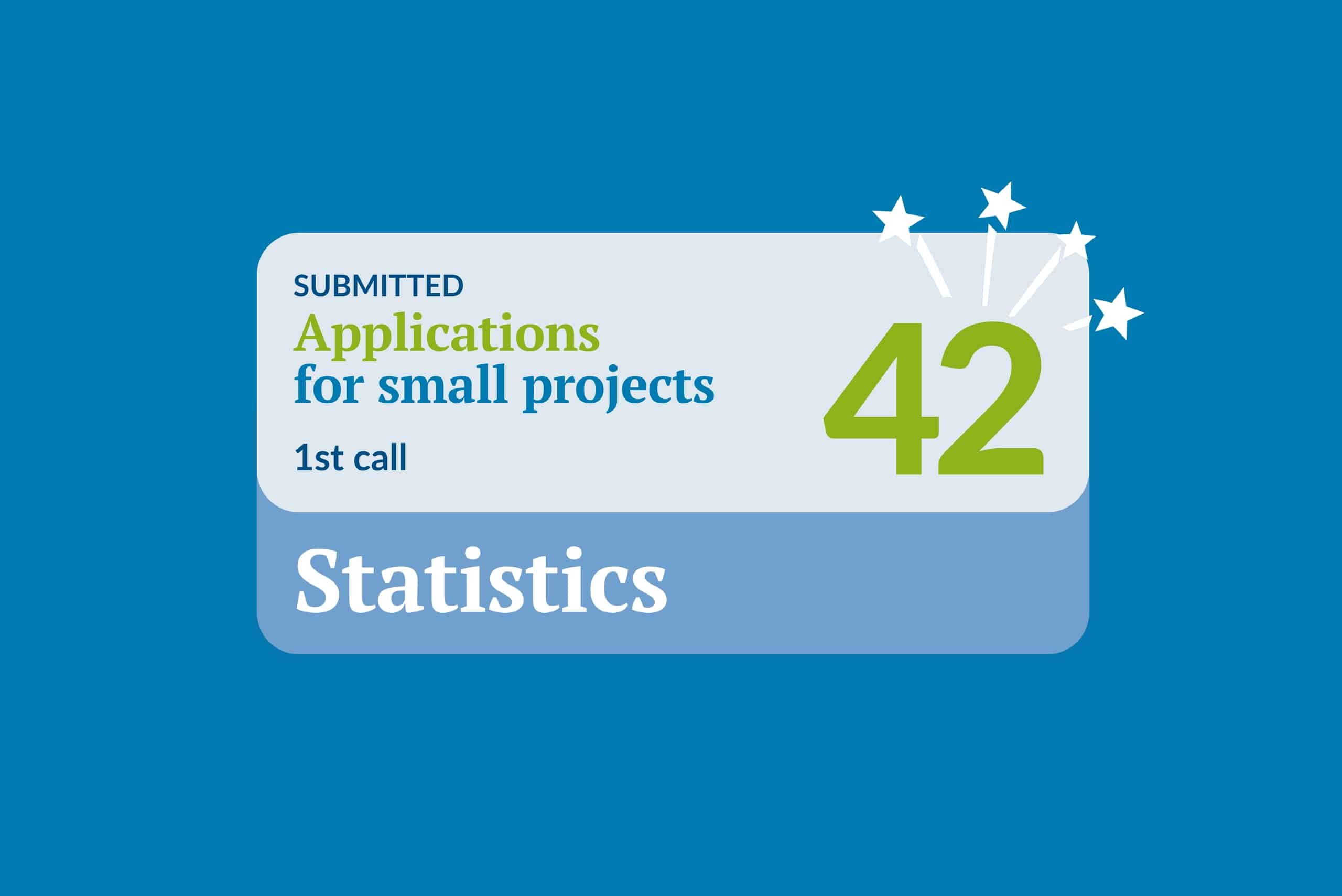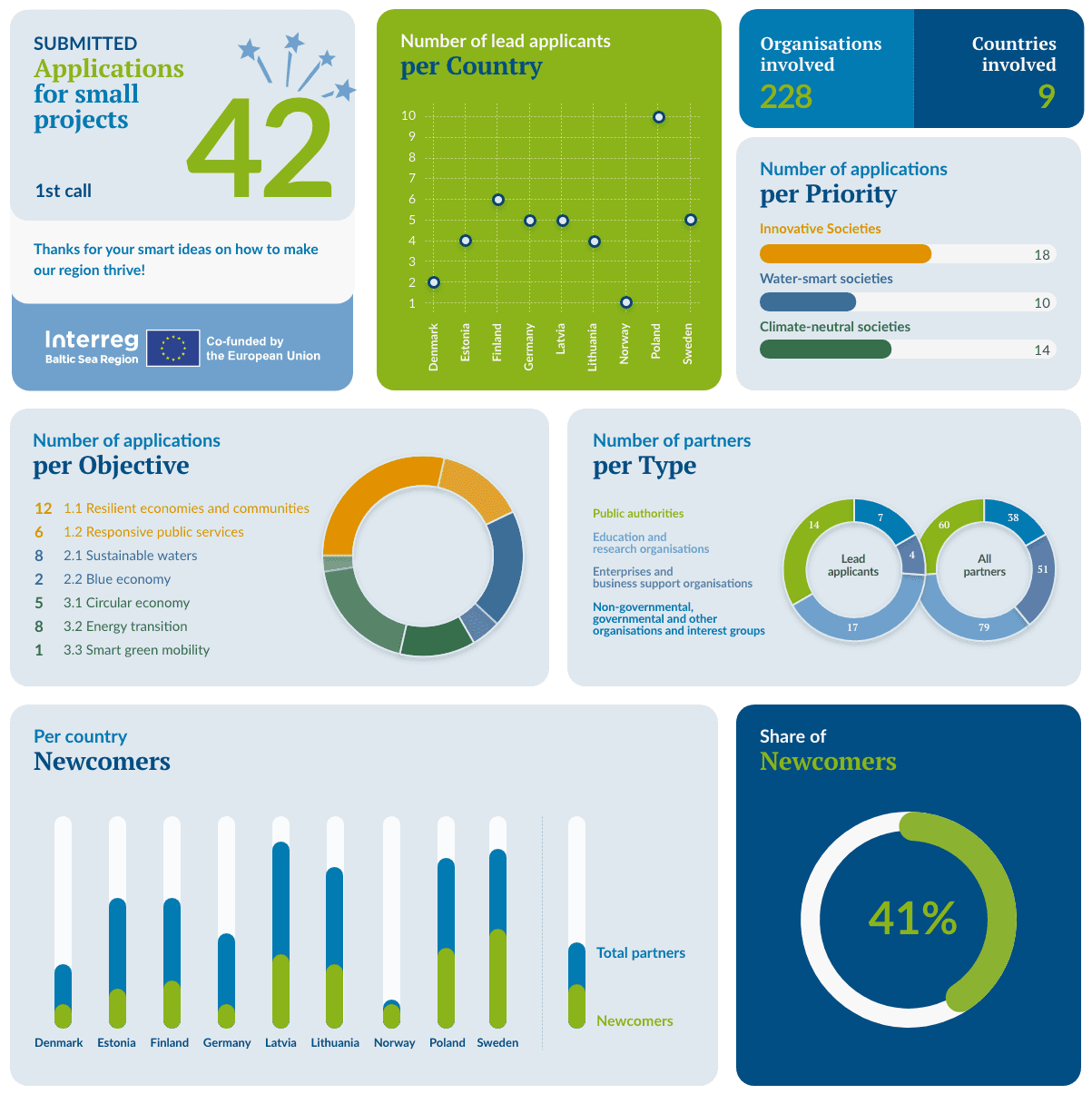
5 April 2022
Celebrating first applications submitted in the new Programme!
Statistics
Written by Anna Gałyga
Small steps for a big change
Thanks to the new instrument of a small project, partnerships, can more easily explore the invaluable benefits of transnational cooperation. Small projects are a fine tool to help keeping networks, respond to unpredictable challenges while building trust and staying close to citizens. With an easier structure, shorter timeframes and a smaller budget, small projects work as a good testing ground for Interreg.
Insights into the applications
In the first call for applications for small projects, the applicants submitted 42 applications that cover all seven Programme objectives. The highest interest attracted the objective on Resilient economies and communities (Priority: Innovative societies), then Sustainable waters (Priority: Water-smart societies) and Energy transition (Priority: Climate-neutral societies).
The applicants successfully involved almost 230 organisations from all Programme area countries. As many as 41% of all organisations have not worked with Interreg before. We are happy to see such a high interest in cooperating across borders for the benefit of the region.
The organisations that most often took the role of a lead applicant are education and research organisations (17) as well as local, regional and national public authorities (14). In addition, a fine share of partners represents enterprises and business support organisations, and non-governmental and international governmental organisations.
In support of macro-regional governance all steps for a big change
The Programme helps advance cooperation governance in the region by supporting the coordination and communication of actors involved in the implementation of the EU Strategy for the Baltic Sea Region (EUSBSR). The calls for applications under priority 4.2 Macro-regional governance brought in a set of applications from the EUSBSR policy area coordinators as well as organisations interested in setting up a new Strategy point for the EUSBSR.
Next steps
Now, all small project applications are undergoing the process of admissibility check and assessment. Then, the Monitoring Committee of the new Programme will select the best project ideas for implementation. This is expected to take place in June, soon after the new Interreg Baltic Sea Region 2021-2027 Programme is officially adopted by the European Commission.
Applicants who submitted their project idea forms (PIFs) for core projects, another type of funding instrument offered by the Programme, are invited to submit their full applications not later than 26 April (16:00 CET). After that, the admissibility check and assessment will also follow.
In order to offer fresh EU funding to other people with smart ideas willing to cooperate across borders, the Programme is planning to open new calls for applications already in the autumn this year.
Don’t miss
More news
Grand results of the first round of small projects!
Despite the winter scenery, the results of 17 finalised Interreg Baltic Sea Region projects are in full bloom! And behind them lie two years of intensive work across borders, mutual learning and inspiration, and connections that last.
Climate-neutral future at hand for Baltic Sea region cities
Turning a city into a climate-neutral one requires knowledgeable people, thorough planning and solid financial resources. But how can cities manage this transition smoothly? The Interreg project Climate-4-Case guides cities around the Baltic Sea on how to do that right.
Designing Interreg Baltic Sea Region that belongs to everyone
10 December 2025 Designing Interreg Baltic Sea Region that belongs to everyone Written by Eeva Rantama What if the next Interreg Baltic Sea Region...
Monitoring the Programme’s progress: transnational cooperation in the making
Representatives from nine Programme area countries gathered in Berlin on 19-20 November 2025 to review the progress of the Programme’s implementation and start preparing for the post-2027 period.







